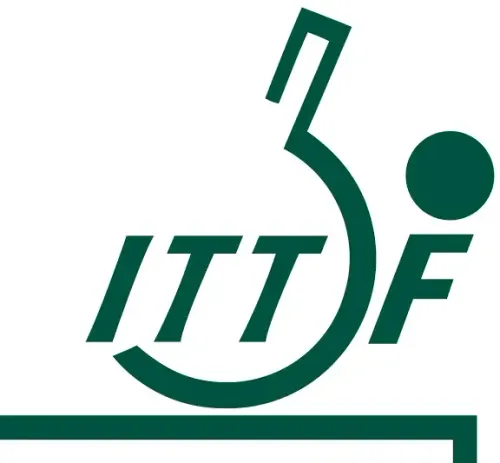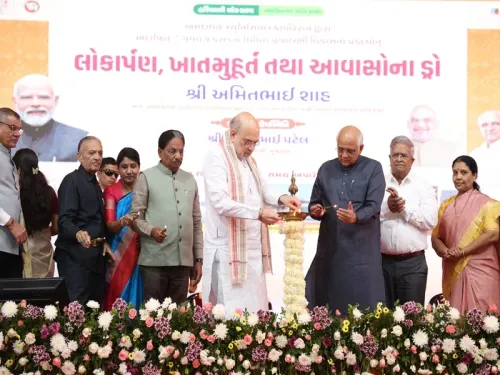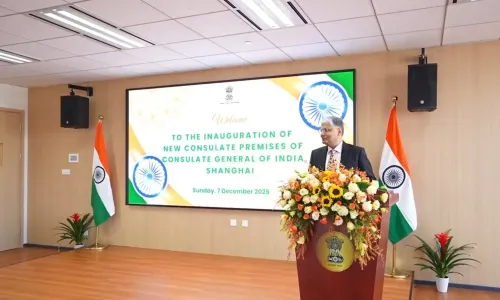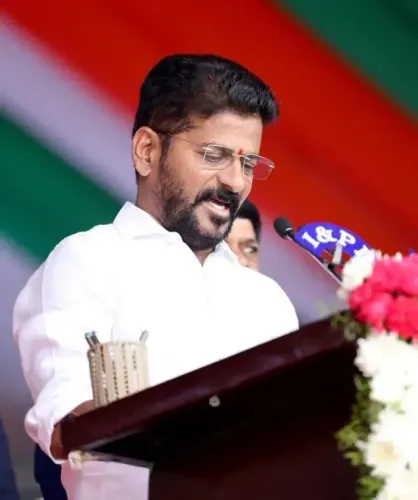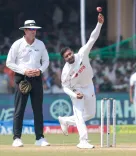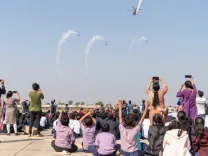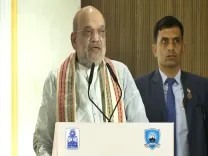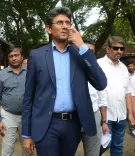What went wrong during the Pahalgam terror attack? Iltija Mufti's insights
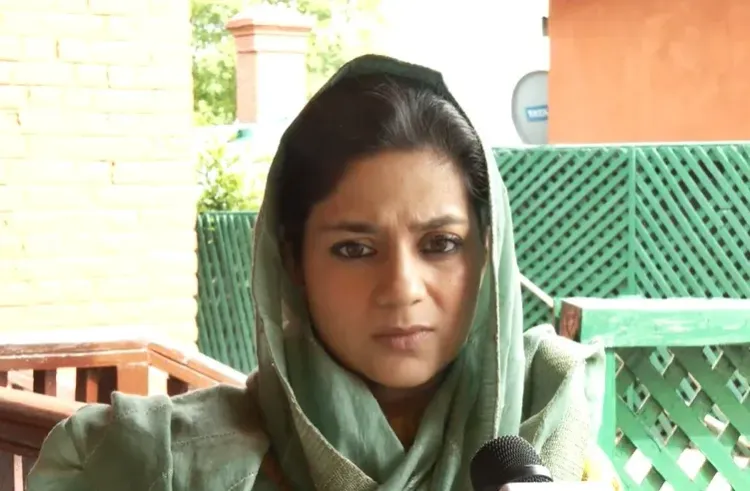
Synopsis
Key Takeaways
- Iltija Mufti highlights the need for investigation into the Pahalgam terror attack.
- Condemnation of violence and the importance of humanity in political discourse.
- The media's portrayal of political figures impacts public perception.
- Current treatment of Kashmiris across India raises concerns for their safety.
- The Waqf (Amendment) Act viewed as a political maneuver against Muslims.
Srinagar, May 6 (NationPress) Iltija Mufti, the daughter of PDP chief Mehbooba Mufti, remarked on Tuesday that the ability of terrorists to execute a significant assault in Pahalgam, Jammu and Kashmir (J&K), a popular tourist destination, suggests that a serious miscalculation has occurred and calls for thorough investigation.
In her interview with IANS, Iltija emphasized her mother's peace-loving nature and criticized the media's portrayal of her as anti-India and non-secular.
Beyond the Pahalgam attack, she addressed various topics, including the current border situation, the repatriation of Pakistani citizens, the Waqf (Amendment) Act, and J&K Chief Minister Omar Abdullah's meeting with Prime Minister Narendra Modi.
Here are some highlights from the interview:
IANS: 26 innocent lives were lost in the recent terror attack in Pahalgam. Your thoughts?
Iltija Mufti: This was a heinous act, and we unequivocally condemn it. Violence has no place in our society. The loss of life, particularly among tourists, is heart-wrenching. It is a tragedy when young couples are devastated by such senseless violence. As human beings, we must come together against such targeted killings.
IANS: Who should be held accountable for this attack? Is Pakistan involved?
Iltija Mufti: Since the abrogation of Article 370, the law and order situation here has been under the purview of the Ministry of Home Affairs. Thus, it’s challenging for me to comment on accountability as these matters lie outside my jurisdiction and that of the J&K government. The central government in Delhi needs to provide clarity. Now is not the time for blame; we must allow for a comprehensive investigation to understand how this incident occurred.
Tourist hotspots like Baisaran and Pahalgam attract many visitors daily, yet this attack transpired. Clearly, there must be an investigation. I am not in a position to assign blame, but there was a serious lapse somewhere that led to this tragedy. Only a full investigation can provide answers.
IANS: Your mother visited Pahalgam and engaged with the locals. What's your perspective?
Iltija Mufti: The media, particularly the so-called 'godi' media, has constructed a misleading narrative about Mehbooba ji, branding her as anti-India or non-secular. In reality, she is deeply committed to peace. Her visit to Pahalgam was essential, not only for the locals but also to reassure tourists of our longstanding hospitality. The visuals of her interactions with tourists illustrate our ongoing commitment to welcoming them.
Some media outlets spread the false notion that tourists are unwelcome in Jammu and Kashmir, which is far from the truth. Our state is open and welcoming to tourists, and we embrace them with warmth and hospitality.
IANS: In the aftermath of this attack, there have been reports of Pakistani citizens being sent back. How do you perceive this?
Iltija Mufti: Numerous individuals have been residing in India for decades. For instance, a Pakistani woman whose son died while serving in the CRPF has been living here. Home Minister Amit Shah himself visited her after her son's martyrdom. These situations reveal the injustices happening. While the government may feel compelled to take certain actions, I believe we should approach the matter with compassion.
IANS: A CRPF personnel was dismissed upon revelation of his marriage to a Pakistani woman. Your thoughts?
Iltija Mufti: I am not well-versed in this specific case. If the police are withholding details, that is beyond my purview. I did see an interview with the soldier where he stated he had disclosed this information to the CRPF and security agencies. This is a personal issue regarding a CRPF soldier, and since an investigation is ongoing, I cannot comment further.
IANS: Do you view war as a viable option?
Iltija Mufti: Discussions about war place the residents of Jammu and Kashmir in a precarious position, as we are a border state and often bear the brunt of such conflicts. However, certain matters lie outside our control. If the government deems it necessary to take retaliatory action for the sake of law and order and national security, that is within their authority. I am not in a position to comment on that.
I believe war is never a solution. As PM Modi stated during his visit to Russia, “The era of war is over.” We must uphold that principle.
IANS: Congress leader Charanjit Singh Channi has cast doubt on the surgical strikes conducted by the Indian armed forces, suggesting people await action from the “so-called 56-inch chest.” How do you respond?
Iltija Mufti: Such unfounded and provocative remarks are inappropriate, particularly when many of our people are mourning. The time since the attack is still fresh, and I believe our politicians should approach these matters with sensitivity. There is no need for petty rhetoric at such a critical moment.
IANS: You and your mother have indicated that Kashmiris are facing harassment across India following the Pahalgam attack. What is your stance?
Iltija Mufti: I feel profound disappointment as a Kashmiri. There is a growing suspicion directed at every Kashmiri across India. Even in Delhi, our students and businesspeople are being targeted. PM Modi needs to engage with the Kashmiri community; he has effectively left us to fend for ourselves. The humiliation we have experienced since 2019 and the treatment of Muslims is disheartening.
PM Modi is not solely the Prime Minister of Hindus; he represents Muslims, Sikhs, Christians, Buddhists, and every citizen of India. He must meet our expectations and ensure our protection. The situation in Kashmir over the past six years has been deeply disappointing.
IANS: Your thoughts on the Waqf (Amendment) Act?
Iltija Mufti: The narrative surrounding the repeal of Article 370 misled both the people of Kashmir and the country, falsely claiming it was for the development of J&K; this was mere propaganda. The time since the Waqf (Amendment) Act was enacted has shown that many madrasas and dargahs are being demolished. This Act seeks to undermine Muslims. Political motives are driving the demolition of mosques for electoral gain, which poses a threat to our nation's essence. This country belongs to Gandhiji, and the Waqf Act is a blatant attack on Muslims, aiming to strip away their remaining freedoms and religious autonomy.
IANS: What is your view regarding J&K Chief Minister Omar Abdullah's meeting with PM Modi and his Assembly address?
Iltija Mufti: The people of Jammu and Kashmir have endured significant losses since 2019. We must advocate for a larger cause. The NC's narrative on statehood aligns with that of the BJP. The NC did not address the Waqf Act in the Assembly, nor did BJP MLAs. If the NC merely echoes the BJP's stance, then why should people elect 50 MLAs? If the NC is going to follow the BJP's line, they are betraying the people of J&K.
IANS: An Over Ground Worker (OGW), who assisted the Pahalgam terrorists, reportedly jumped into the river when taken to identify a hideout. Your thoughts?
Iltija Mufti: Those responsible for the terror attack must face justice. Families who lost loved ones deserve accountability. However, individuals labeled as OGWs or accused often stem from narratives provided by security agencies that are not always verified. We have witnessed this firsthand.
While I won’t claim that all police officers are incorrect, we have seen instances of fake encounters involving the Army and police in places like Bandipore, Kupwara, and even Rajouri-Poonch two years ago. Thus, the narrative presented to you may not always be accurate.
In Pulwama last week, 10–15 homes were destroyed, with only one belonging to a suspected militant; the rest were innocent civilians. I am grateful to Mehbooba Mufti for speaking with the Home Minister to highlight that the demolitions affected not just militants but also common people, which is unjust. Following her intervention, the demolitions ceased. The government cannot indiscriminately label everyone as militants or OGWs.
Initially, it was stated that after 2019, the people of J&K were integrated. However, integration is not solely geographical; it must also be emotional and psychological. If you regard everyone with suspicion and hatred, as extremists or OGWs, how will you ever bridge the gap between Kashmir and Delhi?


